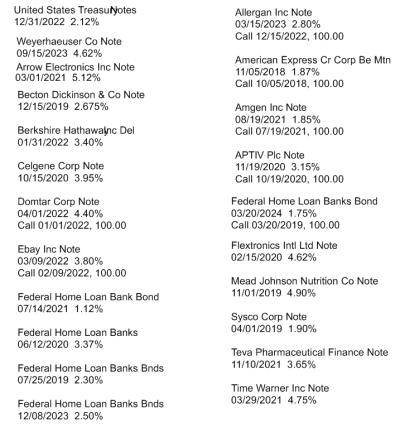While I subscribe to avoiding market timing with my equity allocation, I can't help but look at my bond allocation and second guess my strategy. Conventional wisdom says my bonds are there to mitigate volatility so just stay the course. I am 18 months from launching and will be 100% dependent upon my investments to provide my RE income. My AA is 60/40 with my 40 primarily comprised of intermediate bond funds/ETFs, however, I have sprinkled it with a small portion of preferreds/foreign bonds/high yield to hopefully juice it some and appease my inner desire to tinker... I know, you purest are going to tell me I am playing games with my AA.
So here is where I am starting to have further thoughts about my intermediate bonds. In the current environment of somewhat predictable rate increases, it appears bond prices will continue to have negative pricing pressure eating into overall returns (despite 3% yield, overall return may be negative). Meanwhile, I notice my money market fund is up to about 1.88% and continues to bump up with rate increases. It appears to me that there could be a more prudent short term strategy here, at least in your tax differed accounts, to take your short/intermediate bond allocation and go into money market accounts (or perhaps some sort of CD ladder) and wait until certain market forces (i.e. rate increases flatten out, market event) and then switch back?? Yes, this is market timing, but from what I can see, with short/intermediate bonds being less volatile and more predictable in this current climate along with rising money market yields, is there not something to gain (and not much to lose) by taking this short term approach? Not suggesting this in every situation, just in the current environment. Thoughts?
So here is where I am starting to have further thoughts about my intermediate bonds. In the current environment of somewhat predictable rate increases, it appears bond prices will continue to have negative pricing pressure eating into overall returns (despite 3% yield, overall return may be negative). Meanwhile, I notice my money market fund is up to about 1.88% and continues to bump up with rate increases. It appears to me that there could be a more prudent short term strategy here, at least in your tax differed accounts, to take your short/intermediate bond allocation and go into money market accounts (or perhaps some sort of CD ladder) and wait until certain market forces (i.e. rate increases flatten out, market event) and then switch back?? Yes, this is market timing, but from what I can see, with short/intermediate bonds being less volatile and more predictable in this current climate along with rising money market yields, is there not something to gain (and not much to lose) by taking this short term approach? Not suggesting this in every situation, just in the current environment. Thoughts?

